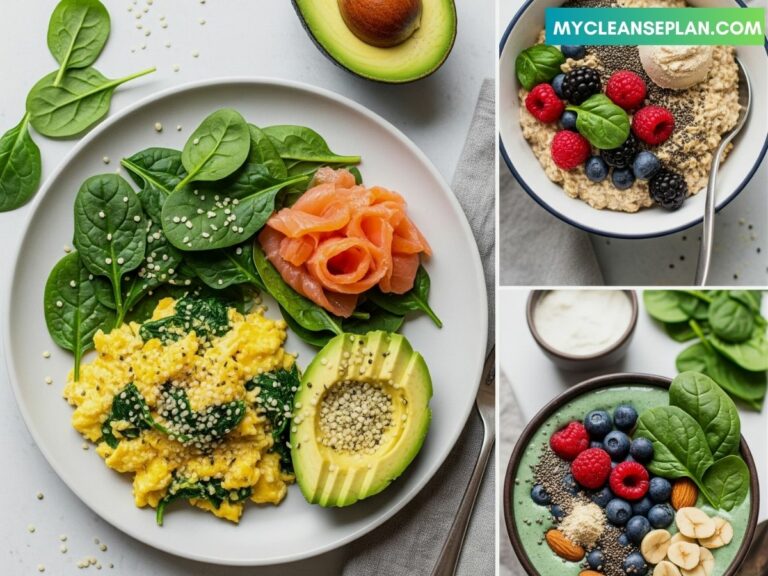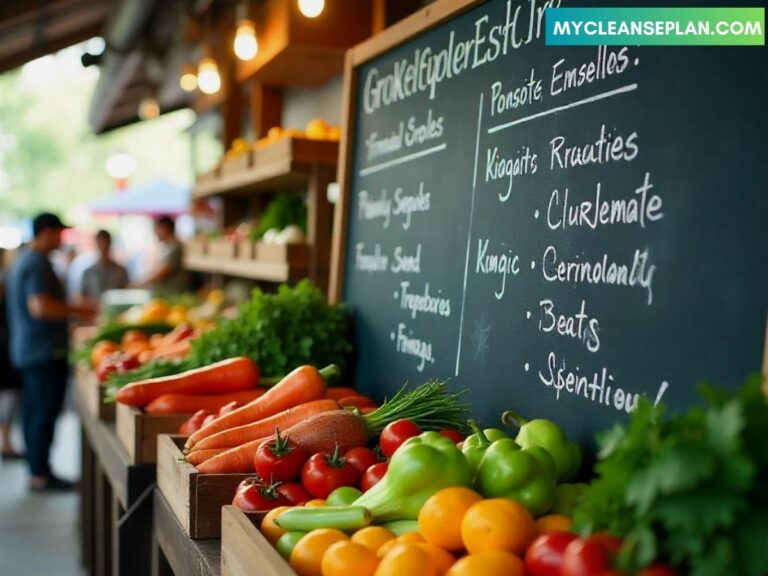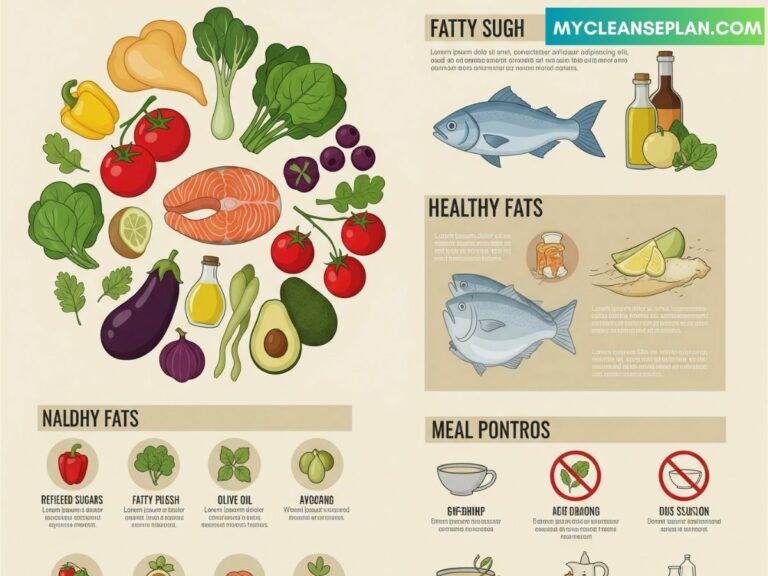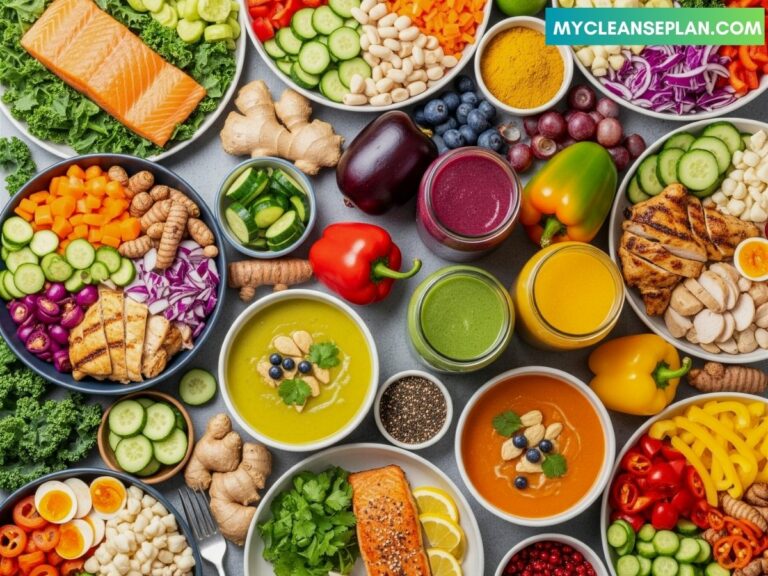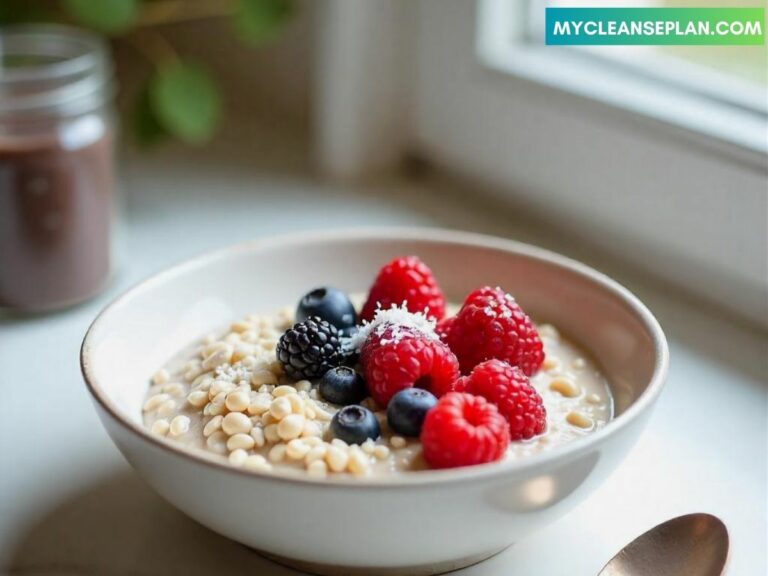Anti-Inflammatory Snacks You Can Make at Home
Chronic inflammation is a growing concern, affecting millions of people worldwide. As someone who values healthy eating, I’m excited to share my favorite healthy snacks that can help combat inflammation.
Did you know that certain foods can trigger or reduce inflammation in the body? By incorporating the right ingredients into your diet, you can create delicious and inflammation-fighting treats in the comfort of your own kitchen.
As we explore the world of homemade snacks, I’ll provide you with simple and tasty ideas to get you started on your journey to a healthier you.
Key Takeaways
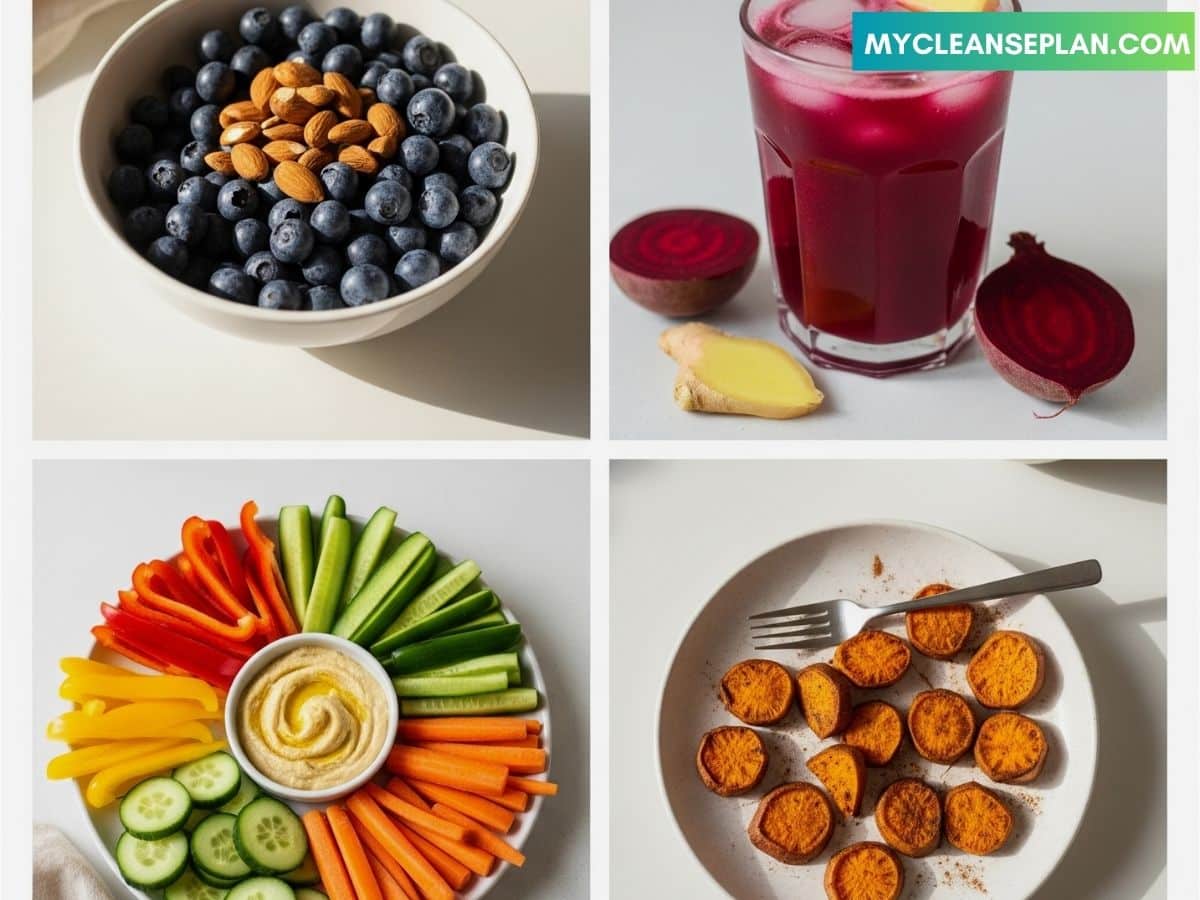
Understanding Inflammation and Its Impact on Health
As we explore the world of anti-inflammatory snacks, it’s essential to first grasp the basics of inflammation and its effects on our bodies.
Inflammation is a natural response that can be both beneficial and harmful, depending on the context.
Acute vs. Chronic Inflammation
Acute inflammation is the body’s immediate response to injury or infection, characterized by redness, swelling, and pain.
This type of inflammation is necessary for healing. On the other hand, chronic inflammation persists over time and can lead to various health issues, including cardiovascular disease, diabetes, and arthritis.
https://gigasecurehome.com/ring-doorbell-not-charging-from-a-transformer

How Diet Affects Inflammation
Diet plays a significant role in managing inflammation. Consuming foods high in sugar, saturated fats, and refined carbohydrates can exacerbate inflammation, while a diet rich in fruits, vegetables, whole grains, and healthy fats can help reduce it.
Incorporating inflammation-fighting recipes and homemade snacks into your daily routine can be a proactive step towards minimizing chronic inflammation.
Signs Your Body Might Be Inflamed

Recognizing the signs of inflammation is crucial for taking timely action. Common indicators include persistent fatigue, joint pain, skin issues, and digestive problems.
By being aware of these signs and adjusting your diet accordingly, you can better manage inflammation and improve your overall health.
The Science Behind Anti-Inflammatory Foods
The science behind anti-inflammatory foods reveals that certain compounds can significantly impact our body’s inflammatory response. By understanding how these foods work, we can make informed choices about the snacks we eat.
Key Nutrients That Fight Inflammation
Certain nutrients have been identified as having anti-inflammatory properties. These include omega-3 fatty acids, found in fatty fish, and antioxidants, abundant in fruits and vegetables.
Incorporating these nutrients into your diet can be as simple as making easy snacks to reduce inflammation, such as a mix of nuts and dried fruits.
Foods to Embrace and Avoid
To maximize the anti-inflammatory effects of your diet, it’s essential to know which foods to embrace and which to avoid.
Foods high in processed sugars and saturated fats can exacerbate inflammation, while whole, nutrient-dense foods can help reduce it.
Preparing DIY anti-inflammatory snacks allows you to control the ingredients and avoid harmful additives.
How Antioxidants Work Against Inflammation
Antioxidants play a crucial role in combating inflammation by neutralizing free radicals in the body.
Foods rich in antioxidants, such as berries and leafy greens, can be easily incorporated into snacks to enhance their anti-inflammatory potential.
By understanding how antioxidants work, you can create snacks that are both delicious and beneficial for your health.

Essential Ingredients for Your Anti-Inflammatory Pantry
Creating a well-stocked anti-inflammatory pantry is the first step towards healthier snacking. By incorporating the right ingredients, you can easily make clean eating snacks that are both delicious and nutritious.
Spices and Herbs
Spices and herbs are not only flavor enhancers but also packed with anti-inflammatory properties.
Turmeric, with its active compound curcumin, is a powerful anti-inflammatory agent. Ginger has been shown to reduce inflammation and pain. Cinnamon, rich in antioxidants, can help reduce inflammation and improve overall health.
https://gigasecurehome.com/ring-doorbell-solid-blue-light
Nuts and Seeds
Nuts and seeds are rich in healthy fats and antioxidants, making them ideal for anti-inflammatory snacking. Walnuts are a great source of omega-3 fatty acids, which are known to reduce inflammation.
Flaxseeds and chia seeds are rich in fiber and omega-3s, supporting heart health and reducing inflammation.

Fruits and Vegetables
Fruits and vegetables are crucial in an anti-inflammatory diet. Berries are rich in antioxidants and have been shown to reduce inflammation.
Leafy greens like spinach and kale are packed with vitamins and minerals that fight inflammation. Avocados, rich in healthy fats, support heart health and reduce inflammation.
Healthy Oils and Fats
Using healthy oils and fats is essential in cooking anti-inflammatory meals. Olive oil, rich in antioxidants, is a staple in Mediterranean diets known for their anti-inflammatory benefits.
Avocado oil and coconut oil are also beneficial, providing healthy fats that support overall well-being.
By stocking your pantry with these ingredients, you’ll be well on your way to creating simple anti-inflammatory recipes that are both healthy and delicious.
Quick and Easy Anti-Inflammatory Snacks You Can Make at Home
You can easily make anti-inflammatory snacks at home with minimal preparation. These snacks are not only healthy but also delicious and convenient.
5-Minute Prep Options
For those with busy schedules, preparing a healthy snack can be as simple as combining a few ingredients.
Apple slices with almond butter and cinnamon is a great example. The fiber in apples, healthy fats in almond butter, and anti-inflammatory properties of cinnamon make for a satisfying snack.

No-Cook Alternatives
No-cook snacks are perfect for hot days or when you're short on time. Cucumber rounds with hummus and turmeric offer a refreshing and anti-inflammatory option.
The cooling effect of cucumber, the protein in hummus, and the anti-inflammatory compound curcumin in turmeric create a snack that’s both healthy and easy to prepare.
Simple Ingredient Combinations
Combining simple ingredients can result in snacks that are greater than the sum of their parts. For instance, mixing nuts and seeds with dried fruits and a sprinkle of cinnamon can create a delicious and healthy snack.
Apple Slices with Almond Butter and Cinnamon
This snack is a perfect blend of taste and nutrition. The antioxidants in apples, the healthy fats in almond butter, and the anti-inflammatory properties of cinnamon make it an ideal anti-inflammatory snack.
Cucumber Rounds with Hummus and Turmeric
This refreshing snack is not only easy to make but also packed with anti-inflammatory benefits. The curcumin in turmeric, combined with the hydrating effect of cucumber and the protein-rich hummus, makes for a snack that’s both satisfying and healthy.
Nutrient-Packed Smoothie Bowls and Drinks
Blending anti-inflammatory ingredients into smoothie bowls and drinks is a tasty and convenient way to enhance your health.
These nutrient-packed options not only taste great but also provide a boost of ingredients that can help reduce inflammation.
Berry-Turmeric Smoothie Bowl Recipe
A berry-turmeric smoothie bowl combines the anti-inflammatory properties of turmeric with antioxidant-rich berries.
To make, blend together your favorite berries, a banana, a pinch of turmeric, and a splash of almond milk. Top with granola, nuts, and fresh fruit.
Green Anti-Inflammatory Elixir
The green anti-inflammatory elixir is a refreshing drink made with spinach, green apple, cucumber, and a squeeze of lemon.
Blend these ingredients together for a nutrient-packed drink that can help combat inflammation.
- 2 cups spinach
- 1 green apple, chopped
- 1/2 cucumber, sliced
- Juice of 1 lemon
Golden Milk Recipe
Golden milk is a comforting drink that combines turmeric with warm milk (dairy or plant-based). Add a pinch of black pepper to enhance the absorption of turmeric’s anti-inflammatory properties. You can sweeten with honey to taste.
Iced Ginger Tea with Lemon
Iced ginger tea with lemon is a refreshing and anti-inflammatory drink perfect for warm days. Steep fresh ginger in hot water, then chill and serve over ice with a squeeze of lemon.
These recipes are not only delicious but also packed with anti-inflammatory ingredients that can help support your overall health.
Enjoy experimenting with different combinations to find your favorite ways to reduce inflammation through nutrition.
Savory Anti-Inflammatory Snack Options
Incorporating savory snacks into your diet can be a delicious way to combat inflammation. These snacks are not only tasty but also packed with nutrients that help reduce inflammation.

Roasted Chickpeas with Anti-Inflammatory Spices
Roasted chickpeas seasoned with anti-inflammatory spices like turmeric and ginger make for a crunchy and healthy snack.
To make them, simply rinse a can of chickpeas, toss with olive oil, and your choice of spices, and roast in the oven until crispy.
- Turmeric contains curcumin, a powerful anti-inflammatory compound
- Ginger has anti-inflammatory properties that can help reduce pain
- Cumin supports digestive health, which is linked to reduced inflammation
Avocado-Based Dips and Spreads
Avocados are rich in healthy fats that help reduce inflammation. Make a delicious dip by blending ripe avocados with lemon juice, garlic, and herbs like parsley or cilantro.
Benefits of Avocado:
- Rich in antioxidants
- Supports heart health
- May help reduce inflammation in the digestive tract
Vegetable Chips Alternatives
Instead of reaching for store-bought vegetable chips, try making your own by baking or dehydrating slices of vegetables like sweet potatoes, kale, or carrots.
Mediterranean-Inspired Snack Plate
Create a snack plate with ingredients commonly found in the Mediterranean diet, such as olives, artichoke hearts, and feta cheese. These foods are rich in anti-inflammatory compounds.
Key Components:
- Olives: rich in oleocanthal, which has anti-inflammatory properties
- Artichoke hearts: high in antioxidants and fiber
- Feta cheese: contains conjugated linoleic acid (CLA), which may help reduce inflammation
By incorporating these savory snack options into your diet, you can enjoy delicious and healthy ways to reduce inflammation. Try experimenting with different spices and ingredients to find your favorite combinations.
Sweet Treats That Fight Inflammation
I’ve discovered that making a few simple swaps can turn your favorite sweet treats into anti-inflammatory snacks.
By incorporating ingredients rich in antioxidants and anti-inflammatory compounds, you can indulge in delicious desserts while supporting your overall health.
Dark Chocolate and Berry Combinations
Combining dark chocolate with berries is a match made in heaven. Dark chocolate contains flavonoids, which have anti-inflammatory properties, while berries are rich in antioxidants. Try pairing dark chocolate chips with fresh or dried berries for a sweet and satisfying snack.

Chia Pudding Variations
Chia pudding is a versatile and nutritious snack that can be flavored in numerous ways. Mix chia seeds with almond milk, honey, and vanilla extract, then top with fresh fruit and nuts for added texture and flavor. Chia seeds are rich in omega-3 fatty acids, which help reduce inflammation.
Natural Sweetener Options
When it comes to sweetening your treats, opt for natural sweeteners like honey, maple syrup, or coconut sugar. These alternatives have a lower glycemic index compared to refined sugars and contain antioxidants that can help combat inflammation.
Baked Apple with Cinnamon and Walnuts
Baking apples with cinnamon and walnuts creates a warm, comforting dessert that’s rich in anti-inflammatory compounds.
Cinnamon has been shown to reduce inflammation, while walnuts are a rich source of omega-3 fatty acids.
By incorporating these sweet treats into your diet, you can satisfy your cravings while supporting your anti-inflammatory lifestyle.
Enjoy experimenting with these simple and delicious clean eating snacks and simple anti-inflammatory recipes to find your new favorite desserts.
Protein-Rich Anti-Inflammatory Snacks
To combat inflammation, it’s essential to consume snacks that are not only anti-inflammatory but also high in protein. Protein-rich snacks can help maintain energy levels and support overall health.
Greek Yogurt Parfaits
Greek yogurt is an excellent base for a protein-rich snack. It’s high in protein and contains probiotics that support gut health, which is linked to reduced inflammation.
Layer Greek yogurt with anti-inflammatory ingredients like berries and nuts for a delicious parfait.
- 1 cup Greek yogurt
- 1/2 cup mixed berries
- 1 tablespoon honey
- 1/4 cup chopped walnuts
Nut and Seed Energy Balls
Nuts and seeds are not only rich in healthy fats but also in protein. Combining them with other anti-inflammatory ingredients like oats and dark chocolate creates a satisfying snack.
- 2 tablespoons rolled oats
- 2 tablespoons almond butter
- 1 tablespoon chia seeds
- 1 tablespoon dark chocolate chips
Plant-Based Protein Options
For those following a plant-based diet, there are numerous protein-rich options. Plant-based protein powders, lentils, and chickpeas are excellent sources of protein that can be incorporated into snacks.
| Protein Source | Protein Content |
|---|---|
| Lentils | 18g per 1 cup cooked |
| Chickpeas | 15g per 1 cup cooked |
| Plant-Based Protein Powder | 20g per scoop |
Wild-Caught Salmon Cucumber Bites
For a more savory snack, consider wild-caught salmon paired with cucumber. Salmon is rich in omega-3 fatty acids, which are potent anti-inflammatory agents.

Incorporating these protein-rich anti-inflammatory snacks into your diet can help manage inflammation and support overall health. Experiment with different combinations to find your favorites.
Batch-Prep Anti-Inflammatory Snacks for Busy Weeks
I’ve discovered that dedicating a few hours on the weekend to prep anti-inflammatory snacks makes all the difference during busy weeks.
By having a stash of healthy, homemade snacks ready to go, I can avoid relying on processed foods that might trigger inflammation.

Weekend Prep Strategies
Start by setting aside some time on Saturday or Sunday to prep your snacks for the week. Consider making a big batch of inflammation-fighting recipes like energy balls, trail mix, or roasted chickpeas.
These can be portioned out into individual servings and stored in airtight containers for easy snacking.
Storage Solutions for Maximum Freshness
To keep your homemade snacks fresh, invest in a variety of storage containers. Glass jars with lids are perfect for storing nuts, seeds, and dried fruits, while airtight plastic containers are great for snacks like energy balls or granola.
Freezer-Friendly Options
Some snacks freeze beautifully, making them perfect for batch-prepping. Consider making a large batch of smoothie packs by portioning out frozen berries, spinach, and other ingredients into individual bags. You can also freeze individual servings of homemade energy balls or muffins.
Mason Jar Snack Ideas
Mason jars are a versatile storage solution for a variety of snacks. Layer nuts, seeds, and dried fruits to create a healthy trail mix, or prepare individual servings of overnight oats with anti-inflammatory ingredients like turmeric and ginger.
Adapting Anti-Inflammatory Snacks for Different Dietary Needs
Adapting anti-inflammatory snacks to suit different dietary needs is crucial for maintaining overall health.
With the rise of dietary restrictions and preferences, it’s essential to have options that cater to various needs without compromising on the anti-inflammatory benefits.
Gluten-Free Options
For those with gluten intolerance or sensitivity, gluten-free alternatives can be just as effective in reducing inflammation.
Consider using gluten-free oats, almond flour, or coconut flour in your snack recipes. A simple gluten-free snack is a mix of fresh berries and almonds.
Vegan and Plant-Based Alternatives
Vegan and plant-based diets are rich in anti-inflammatory compounds. Replace dairy with plant-based milks like almond or oat milk, and use vegan-friendly protein sources such as beans, lentils, or tofu. A vegan anti-inflammatory snack could be a turmeric-spiced chickpea dip with vegetable sticks.

Low-FODMAP Modifications
For individuals with IBS or those following a low-FODMAP diet, certain ingredients need to be avoided. Replace high-FODMAP foods with low-FODMAP alternatives. For example, use garlic-infused oil instead of garlic cloves, and choose lactose-free dairy products.
Keto-Friendly Choices
The keto diet can be adapted to include anti-inflammatory foods. Focus on high-fat, low-carb snacks like avocado, nuts, and seeds. A keto-friendly anti-inflammatory snack is a handful of macadamia nuts with a piece of dark chocolate.
| Dietary Need | Snack Options |
|---|---|
| Gluten-Free | Gluten-free oats with berries |
| Vegan/Plant-Based | Turmeric-spiced chickpea dip |
| Low-FODMAP | Lactose-free yogurt with low-FODMAP fruits |
| Keto-Friendly | Macadamia nuts with dark chocolate |
By adapting anti-inflammatory snacks to your dietary needs, you can enjoy the benefits of reduced inflammation while catering to your individual health requirements.
Seasonal Approaches to Anti-Inflammatory Snacking
As the seasons change, incorporating seasonal ingredients into your anti-inflammatory snacks can keep your diet fresh and exciting.
This approach not only ensures you’re consuming the freshest produce but also supports local farmers and reduces your carbon footprint.
Spring and Summer Options
During spring and summer, focus on incorporating fresh fruits and vegetables into your snacks. Berries, citrus fruits, and leafy greens are not only delicious but also packed with antioxidants. Try making a simple anti-inflammatory fruit salad or a refreshing cucumber and avocado dip.
Fall and Winter Comfort Snacks
As fall and winter arrive, turn to comforting, warming snacks that still fight inflammation. Consider roasted sweet potato with turmeric, or a hearty bowl of oatmeal with cinnamon and nuts. These snacks are not only comforting but also rich in anti-inflammatory properties.
Using Local, Seasonal Produce
Using local, seasonal produce is a cornerstone of clean eating snacks. It ensures you’re getting the freshest ingredients while supporting your local community. Here’s a simple guide to get you started:
| Season | Produce | Snack Idea |
|---|---|---|
| Spring | Strawberries, Spinach | Strawberry Spinach Salad |
| Summer | Blueberries, Zucchini | Blueberry Zucchini Muffins |
| Fall | Apples, Sweet Potatoes | Roasted Sweet Potato with Apple Slices |
| Winter | Citrus Fruits, Kale | Citrus and Kale Smoothie |
By embracing seasonal eating and incorporating these simple anti-inflammatory recipes into your diet, you’ll not only be nourishing your body but also contributing to a more sustainable food system.
FAQ Of Anti-Inflammatory Snacks You Can Make at Home
What are some easy anti-inflammatory snacks I can make at home?
Some easy options include apple slices with almond butter and cinnamon, cucumber rounds with hummus and turmeric, and Greek yogurt parfaits with berries and walnuts.
Are there any anti-inflammatory snack options that are vegan and gluten-free?
Yes, you can make vegan and gluten-free snacks like roasted chickpeas with anti-inflammatory spices, avocado-based dips and spreads, and chia pudding variations with plant-based milk.
Can I batch-prep anti-inflammatory snacks for the week?
Absolutely, batch-prepping is a great way to save time during the week. You can prep snacks like energy balls, trail mix, and mason jar salads on the weekends.
How can I adapt anti-inflammatory snacks to suit my dietary needs?
You can modify recipes to be gluten-free, vegan, low-FODMAP, or keto-friendly by substituting ingredients and adjusting portion sizes.
What are some seasonal anti-inflammatory snack options?
In the spring and summer, you can enjoy snacks like fresh berries with Greek yogurt and honey, while in the fall and winter, you can opt for comforting snacks like baked apples with cinnamon and walnuts.
Can I use store-bought ingredients to make anti-inflammatory snacks?
While some store-bought ingredients can be used, it’s best to opt for whole, unprocessed foods as much as possible to maximize the anti-inflammatory benefits.
Are there any anti-inflammatory snack options that are high in protein?
Yes, you can make protein-rich snacks like Greek yogurt parfaits, nut and seed energy balls, and wild-caught salmon cucumber bites.
Conclusion
By now, you’re equipped with the knowledge to make a positive impact on your health through anti-inflammatory snacks.
Incorporating these snacks into your daily routine can be simple and delicious, using ingredients like turmeric, ginger, and berries that fight inflammation.
Making anti-inflammatory snacks at home allows you to take control of your diet and overall wellbeing.
With the variety of options available, from savory roasted chickpeas to sweet dark chocolate and berry combinations, you can easily find snacks that suit your taste preferences.
I encourage you to explore the world of anti-inflammatory eating and discover the benefits of Anti-Inflammatory Snacks You Can Make at Home.
Start with small changes, like replacing processed snacks with homemade alternatives, and watch how these changes can positively impact your health.

